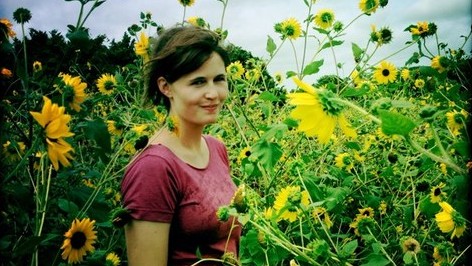My favorite part of the Telling The Story podcast is the final part.
This is where my guest, young or old, offers advice and insight for young journalists entering the field.
At age 32 I consider myself somewhat in the middle — still (I hope) on the younger half of my career, but definitely far beyond the inexperienced journalist I was in college. As a result, I always enjoy the “time capsule” lessons my guests hope to impart on those who are just beginning their careers.
In this case, my guest actually is a young journalist.
Rachel Hamburg is 25 years old and barely two years removed by Stanford University. She may also wince at the idea of being called a journalist in the traditional sense; she participates in journalism, and storytelling, on very innovative and abstract levels. Currently she works as the managing editor of the Stanford Storytelling Project, a thorough and multi-platform college storytelling program in which, among other things, students produce an hour-long radio show and podcast called “State of the Human”.
The podcast is extremely impressive: almost like a college-level “This American Life”, filled with youthful sincerity and detailed attention to the individuals interviewed by the students.
I enjoyed my entire interview with Hamburg, but I specifically appreciated our back-and-forth at the end, where we reached the section about advice. She spoke about the challenges of entering this industry — and the need to which, as a young journalist, “you have to be a hustler.”
“You just have to kind of make it work these days,” she said, “and I don’t know if that’s going to change. But I still think it’s very possible — and I think there are lots of ways for it to be possible, thanks to crowd-funding and stuff like that.”


